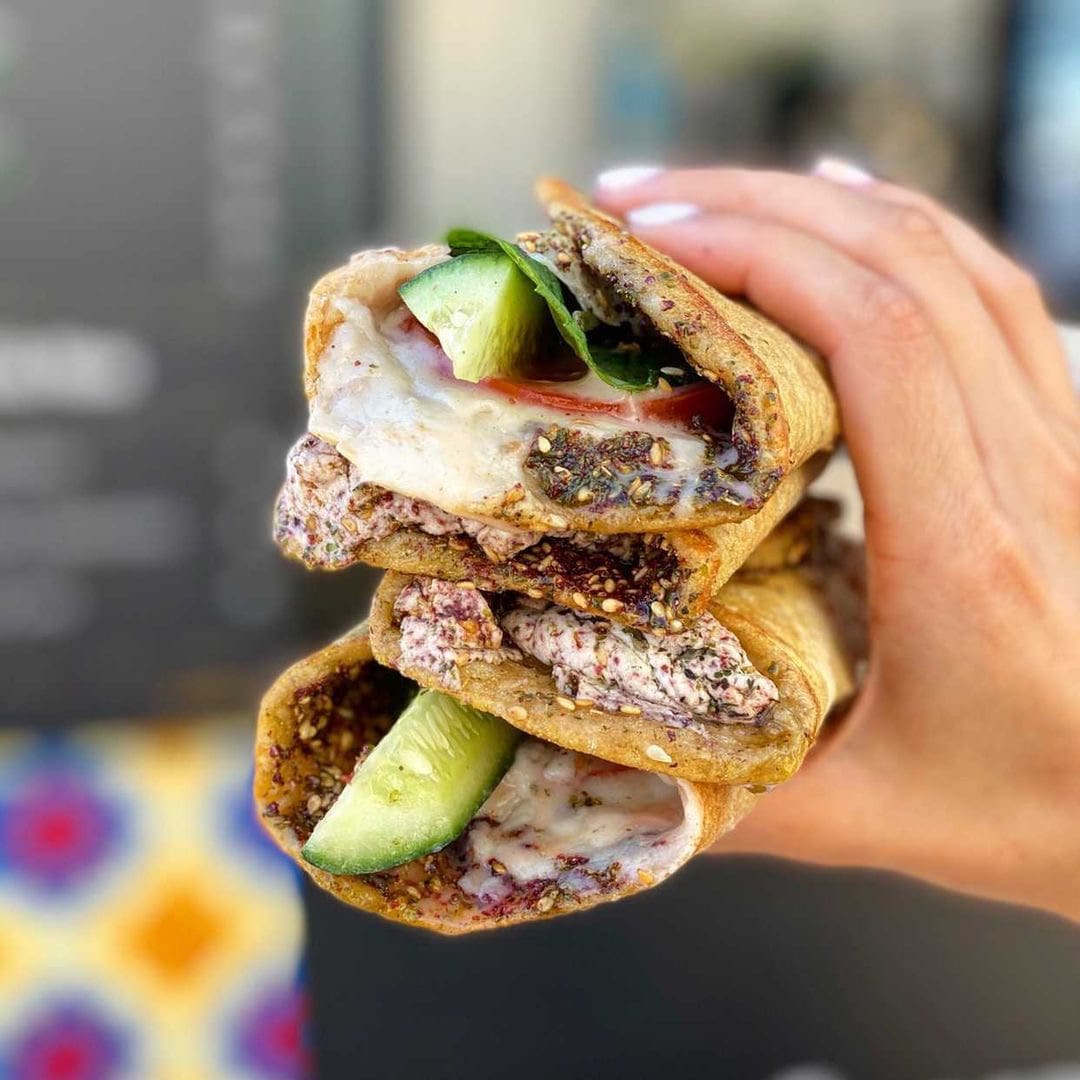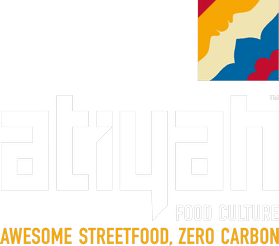Excessive use of finite energy resources is rampant in our industry. From the emissions released during livestock production, to the water used in the food supply chain, to the food waste generated along the way, restaurants and food outlets create a substantial environmental footprint. Food waste alone accounts for 8% of the world’s greenhouse gas emissions, while livestock agriculture produces 11% of Australia’s greenhouse gas emissions.
The good news is that it doesn’t have to be this way. Believe it or not, you don’t need emissions to run a kitchen or produce exceptional food! There’s no need to connect with the grid or put additional pressure on existing infrastructure. And there is absolutely no need for food wastage.
At atiyah, our kitchen is 100% renewable-run and almost entirely self-sufficient thanks to rainwater collection, solar panels and a B100 (carbon neutral) biodiesel generator. We have reduced carbon emissions by 73% by applying sustainable strategies, and have offset the remaining 27%.
Our Zero Carbon Approach
When we set out to launch Australia’s first Climate Active certified carbon neutral kitchen, our dream was to revolutionise sustainable hospitality, while also serving deliciously authentic Lebanese street food. We’ve brought together two things that matter to people today: delicious healthy food and leadership in sustainability, to create an experience that’s about great food and aligned values.
Our Eco Smart Off Grid Kitchen draws all its power requirements from a standalone solar and energy storage solution. This is provided by an incorporated rooftop solar system along with a Tesla battery for additional storage. To assist with daily energy requirements, the kitchen benefits from additional support via a biodiesel generator using a 100% biodiesel fuel source. With integrated smart technology and cloud-based monitoring, the kitchen achieves full energy independence without the need for further support from grid electricity or reserve supply services.
We utilise 100% of rainwater captured from the roof via an internal downpipe. It is filtered and treated using advanced UV light and micron-filters and is then pumped to the food preparation area either through the e-water system or the electric HWU. Wastewater is pumped to a 400L Grease Interceptor Trap to separate solids and grease from grey water, which in turn collects in a 295L holding tank.
Carbon Neutral Catering
In the hospitality and food service sectors, the impact of Melbourne’s city-wide Covid-19 lockdowns was felt early on. Like many others, it became clear to us that in order to weather the storm, we would need to tweak our offering. Given the demand for carbon neutral products and services has seen consistent growth in recent years, extending our services to include catering was something that was always part of our strategic plan – Covid-19 merely brought the timeline forward.
The nature of our business – essentially healthy fast-food/take-away – has meant it hasn’t been a huge shift for us to move into catering.
We are focussed on reducing tree-based paper and fossil fuel-based plastic, so have always used BioPak for our food packaging. BioPak are the most sustainable, environmentally friendly packaging on the market, and they have also created a range especially for catering.
In addition, wherever we can, we deal with climate active, ethical and sustainable suppliers, and engage in conversations with them around setting up a circular economy to reduce waste. Sourcing local suppliers is the key to reducing emissions, and we source our meat from Five Founders, also certified carbon neutral – whose sustainability values align with ours.
If possible, putting a staff member in charge of company sustainability can be helpful, so they can be across the strategies in place, and communicate these to the whole team, getting others involved where appropriate and driving the passion for change from within.
Preserving the Future
The future of our planet and the future of our children lays firmly in our hands, and the next generation are looking for brands to lead the way. Those in the under-30 age bracket in particular, will actively seek out brands who are taking responsibility for creating environmental change. They want to support and reward those businesses who share their values and who are as dedicated to climate change and creating a sustainable future as they are.
Being able to give customers an incredible food experience while also creating a community of people with a passion for saving the planet should be at the heart of the hospitality sector. It’s our responsibility to educate and inspire, to excite and engage, and to demonstrate that there absolutely is hope for the future of our planet and our people.
atiyah means ‘gift of love’ and not only is our food made with love, our whole concept is driven by our love of planet earth and our hope for future generations. In order to make real headway into achieving global sustainability, all of us need to come together, inspire each other and play our part. Remember, the best way to lead change is to BE the change.


